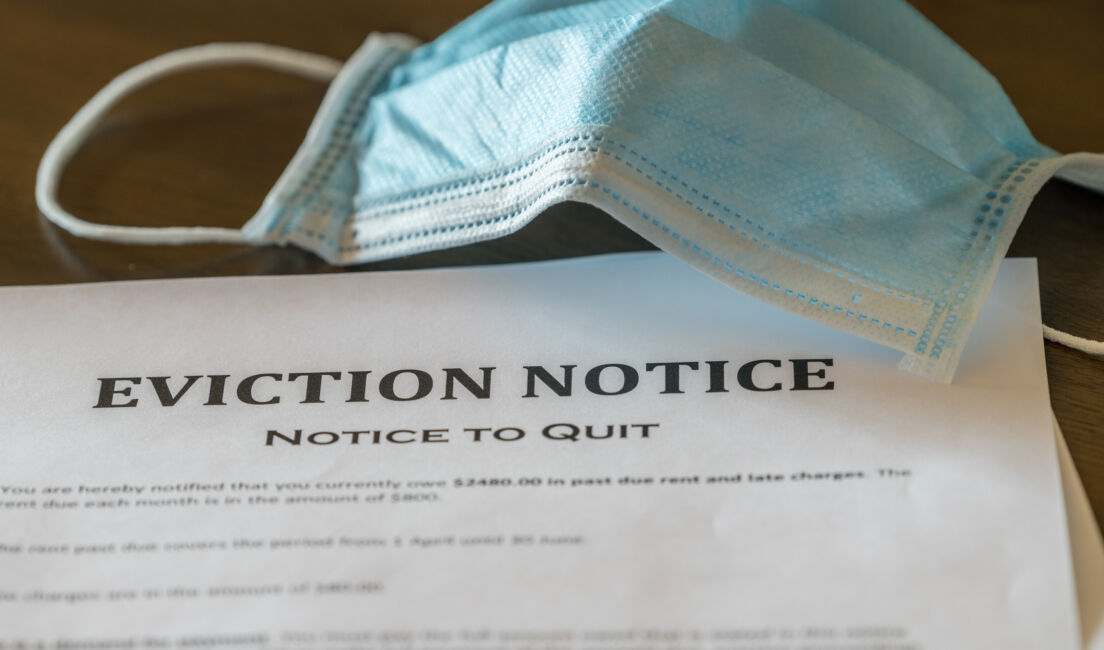The eviction moratorium and 5 links, some of which YOU provided
Good intentions, bad outcomes

Throwing people out of their homes during a pandemic when they’ve lost the ability to pay rent because of that pandemic seems cruel. Last September, the Centers for Disease Control issued a temporary halt on evictions because officials believed increased homelessness would accelerate virus transmission. Homeless people end up in crowded homeless shelters, so, after having lost their jobs and their homes, evictees would also face increased health risks.
Good intentions
We’ve previously considered policies that governments at all levels adapted (or didn’t) to address the pandemic. Some of those interventions worked better than others, but all were probably made with the best of intentions.
Protecting people from homelessness and increased risk of infection is a laudable goal. You might not like the CDC officials’ logic, their communication, or you might challenge their legal authority to issue the moratorium, but I doubt you think, “So what if someone lost her job as a result of the pandemic, got evicted, and ended up in a crowded homeless shelter where she then got COVID? I don’t see the problem.”
The goal of the eviction ban was to protect people’s health and, while we can disagree about the means or reasoning, people likely assume the CDC officials’ intentions were good.
Bad outcomes
Congress also approved $25 billion in emergency rental assistance last December to help both tenants and landlords.
All of this was done with good intentions, but the outcomes aren’t all good. As the federal eviction moratorium expired on July 31st, a recent report found that less than ten percent of emergency funds have been distributed to landlords or tenants in twenty-six states.
While many states and municipalities are now acting to extend the ban’s protection in their jurisdiction, it’s not just tenants who are in trouble. Property owners are unable to collect rent, and, because of the moratorium, they’re left with properties that generate no income and no way to change that.
If you think all landlords are greedy, rich people who are just looking for reasons to kick poor people out on the street, our first link this week will make you rethink that.
Your recommendations
This issue forced me to ask myself: What assumptions have I made about landlords? What assumptions have I made about people who are likely to get evicted? What assumptions have I made about the CDC’s actions? As I read different perspectives on the subject, I recognized a number of assumptions I’d made, and now I’m thinking about how those assumptions influence my opinions and my expression of those opinions.
A few weeks ago, I asked you to share resources you use to understand the economy, and many of you replied. I learned a lot, heard about your experiences, and even met an amazing person who may join us on an upcoming episode of the podcast.
Our five links include two reader recommendations of resources that compare news about the eviction moratorium. You can see for yourself what those on the right, left, and center are saying. We’ve also included an article reporting on the distribution of federal assistance and another looking at how local authorities are responding, now that the moratorium has expired.
Check these out and let me know what you think!
5 links worth your time
- Denying landlords legal recourse to enforce their contracts is more likely to exacerbate housing shortages.
- This site used an algorithm to rate thousands of news articles to rate how informative they are on the topic of the eviction moratorium. (Reader recommendation)
- Here’s some “troll free political news” on the topic of the eviction moratorium. (Reader recommendation)
- Most federal emergency rental aid hasn’t been spent yet.
- Now that the moratorium has expired, what happens to those who needed it most?
Photo by steheap on Adobe Stock